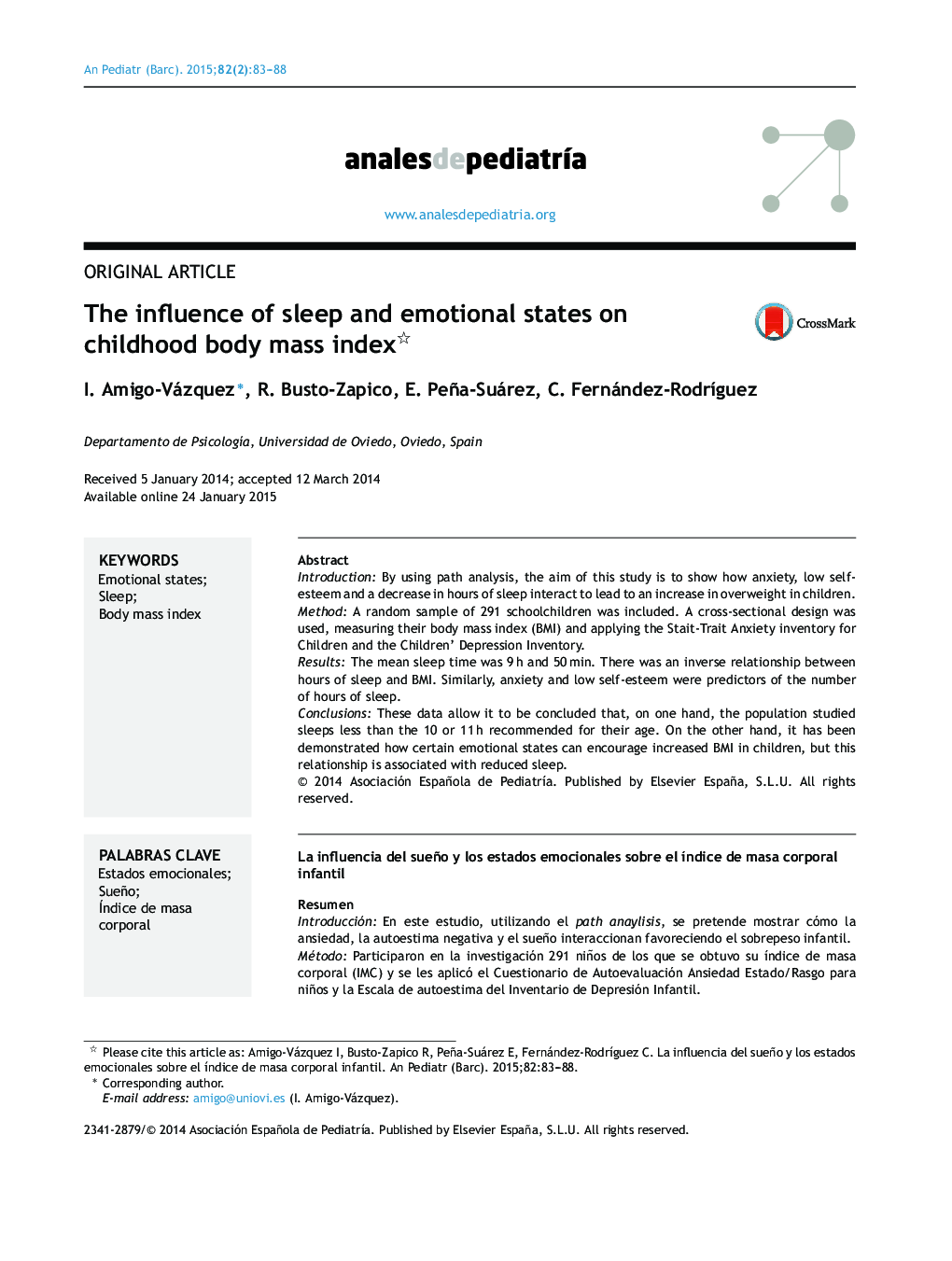| کد مقاله | کد نشریه | سال انتشار | مقاله انگلیسی | نسخه تمام متن |
|---|---|---|---|---|
| 4145280 | 1272599 | 2015 | 6 صفحه PDF | دانلود رایگان |
IntroductionBy using path analysis, the aim of this study is to show how anxiety, low self-esteem and a decrease in hours of sleep interact to lead to an increase in overweight in children.MethodA random sample of 291 schoolchildren was included. A cross-sectional design was used, measuring their body mass index (BMI) and applying the Stait-Trait Anxiety inventory for Children and the Children’ Depression Inventory.ResultsThe mean sleep time was 9 h and 50 min. There was an inverse relationship between hours of sleep and BMI. Similarly, anxiety and low self-esteem were predictors of the number of hours of sleep.ConclusionsThese data allow it to be concluded that, on one hand, the population studied sleeps less than the 10 or 11 h recommended for their age. On the other hand, it has been demonstrated how certain emotional states can encourage increased BMI in children, but this relationship is associated with reduced sleep.
ResumenIntroducciónEn este estudio, utilizando el path anaylisis, se pretende mostrar cómo la ansiedad, la autoestima negativa y el sueño interaccionan favoreciendo el sobrepeso infantil.MétodoParticiparon en la investigación 291 niños de los que se obtuvo su índice de masa corporal (IMC) y se les aplicó el Cuestionario de Autoevaluación Ansiedad Estado/Rasgo para niños y la Escala de autoestima del Inventario de Depresión Infantil.ResultadosLa media de sueño diaria fue 9 h y 50 min. La ansiedad-rasgo y autoestima predijeron un menor número de horas de sueño y las horas de sueño, a su vez, un IMC más elevado.ConclusiónEstos datos permiten concluir, por una parte, que la población estudiada duerme menos de las 10 u 11 h recomendadas para su edad. Por otra parte, se ha mostrado cómo determinados estados emocionales pueden favorecer el incremento del IMC en los niños, pero dicho incremento estaría relacionado con la reducción de horas de sueño asociada a esos estados emocionales.
Journal: Anales de Pediatría (English Edition) - Volume 82, Issue 2, February 2015, Pages 83–88
